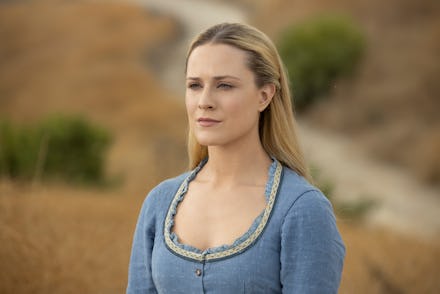Maybe don't renew all of the TV shows

Let’s get this out of the way early: I’ve never seen a full episode of Westworld. The series seemed precision-engineered to be the monocultural successor to Game of Thrones, and I’ve gathered that it started as a cowboy theme park sex fantasy show that now takes place in the real world with Aaron Paul. It might also be a Game of Thrones crossover series? I don’t know, there’s only so much time for this stuff.
The third season of Westworld wrapped up last night, with viewership averaging about half of what the first season netted. Despite the sagging viewership, this won’t be the show’s last season. HBO has already renewed it for a fourth season of a possible six, due to a pre-existing contract with showrunners Jonathan Nolan and Lisa Joy to effectively keep them in-house while they pursue new ventures at Amazon. Almost everything I hear about Westworld now amounts to haha this sucks, all but abandoning tacit optimism that the show might improve, or realizing they’re in too deep to back out now.
There are few things that provide stronger validation than sitting out some buzzy series that drives off the cliff in subsequent seasons. Killing Eve, another series that I put off watching, appeared to nosedive with an inexplicable second season twist after an acclaimed first season. Homeland is perhaps the originator of this condition. The show started with an incredible two-season run that got lost in the muck after collecting the bulk of its awards. Somehow, it is still on the air.
My colleague Kara Weisenstein recently sang her praises of the limited series, which certainly have been enjoying a moment — especially with The Last Dance serving as the oasis for a lost season of sports. I imagine this is thanks to a few reasons. First, film directors and producers are likely finding more freedom and budget flexibility in the form, and since there are so many shows to keep up with, you're less likely to retain viewers across more than three or four years. Not that every limited series can be Twin Peaks: The Return, but if David Lynch is calling TV “the new art house,” then there’s probably some validity to it.
Besides the rise of the limited series, with shows like Watchmen, Chernobyl, and The Plot Against America, the prestige drama is in a strange place. We’re caught in a middle ground where there are only two types of series: the much-hyped hit that probably should have been a one-off, or the slow-starter that really gets going after six or seven episodes. Some of my favorite recent shows, like Succession and The Leftovers, fall into the second category.
Meanwhile, networks are increasingly aware of the saturation they’re up against. Netflix has been clumsily pulling the rug out from shows that deserved to have longer runs, as the so-called era of peak TV wanes. In a sense, something like Westworld feels like a relic from a lost time, when a show could fail indefinitely until it reached a breaking point. In today's environment, it's rare that a series is given this long of a leash to yield gradually diminishing returns.